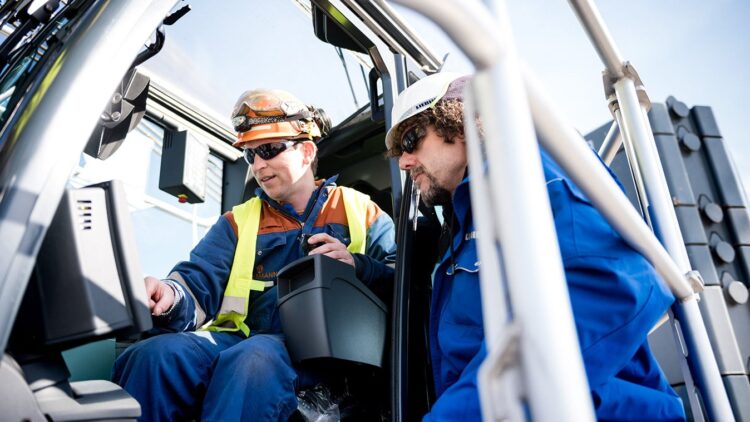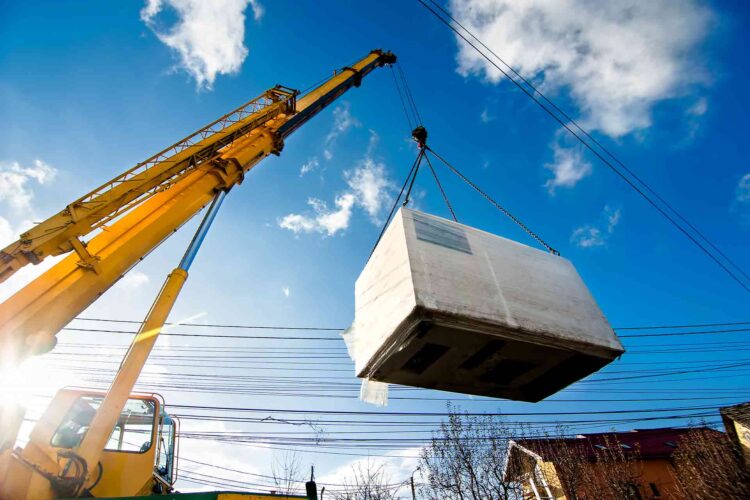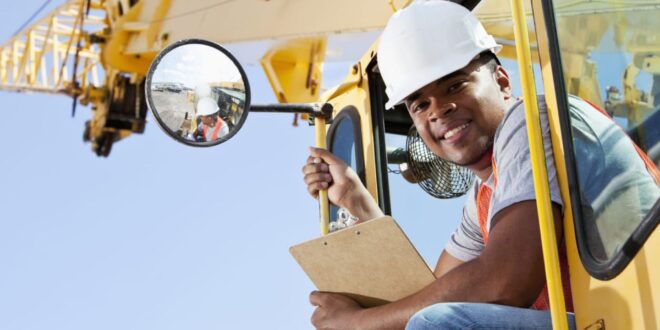Cranes are essential pieces of heavy equipment used in construction, manufacturing, shipping, and other industries. They are designed to lift and move heavy loads, making them indispensable in many construction and industrial projects.
Cranes come in various shapes and sizes, from small mobile cranes to massive tower cranes used in skyscraper construction. They use a combination of mechanical and hydraulic systems to lift and move loads, with the operator typically controlling the crane from a cab or control room.
Despite their usefulness, cranes can also be dangerous if not used properly, so proper training, maintenance, and compliance with regulations are crucial for safe and effective crane operation.
Operator Training

Crane operators undergo specialized training to ensure that they have the necessary skills and knowledge to operate cranes safely and effectively. The specific training requirements may vary depending on the type of crane being operated and the regulatory requirements in the region where the operator is working. However, some general training elements that crane operators typically undergo include:
- Classroom training ─ This training covers theoretical aspects of crane operation, including crane components, load charts, rigging, and safety procedures.
- Practical training ─ Crane operators receive hands-on training on how to operate the crane. This training usually involves simulating real-world scenarios to help the operator develop practical skills, such as load handling, load stability, and communication with signal persons.
- On-the-job training ─ Crane operators receive additional training and guidance while working on actual job sites, to help them develop the skills necessary to handle the specific challenges and risks associated with different job sites.
- Certification ─ In many regions, crane operators are required to obtain certification from a recognized certifying body to demonstrate their competence and qualifications. Certification typically involves passing written and practical exams and requires ongoing training and recertification.
- Safety training ─ Crane operators must also receive specialized safety training to understand and mitigate the risks associated with crane operation. This training typically covers topics such as identifying hazards, performing pre-operation inspections, and responding to emergencies.
What’s Crane Hire Compliance?

Crane hire compliance refers to the adherence to legal and regulatory requirements in the hiring and operation of cranes. Compliance is essential to ensure the safety of workers, the public, and the environment. You can visit different professional websites to help and advice you on these regulations to avoid accidents, injuries, and even fatalities.
Here are some important considerations for crane hire compliance:
- Licensing and certification ─ It is essential to ensure that the crane operator has the appropriate license and certification. Operators must be trained, tested, and certified to operate specific types of cranes. Employers must verify the operator’s qualifications before allowing them to operate the crane.
- Maintenance and inspection ─ Cranes must undergo regular maintenance and inspections to ensure that they are in good working order. Employers must keep detailed records of inspections and maintenance activities to demonstrate compliance with regulations.
- Site preparation and planning ─ Employers must assess the site where the crane will be used to identify any potential hazards. They must also develop a plan for the safe use of the crane, including identifying load capacity limits, clearance requirements, and potential risks.
- Risk assessment and management ─ Employers must identify and assess the risks associated with crane use and implement controls to minimize those risks. This may include providing appropriate personal protective equipment, establishing safe work practices, and ensuring that workers receive appropriate training.
- Documentation and record-keeping ─ Employers must keep detailed records of all activities related to crane hire and operation. This includes records of inspections, maintenance, and training, as well as incident reports and corrective actions taken.
- Compliance with relevant standards and regulations ─ Employers must ensure that their crane hire and operation activities comply with relevant standards and regulations, such as OSHA regulations, ANSI standards, and local building codes.
In summary, crane operators undergo specialized training to develop the necessary knowledge and skill to operate these machinery strictly following crane hire compliance which is crucial for ensuring the safety of workers and the public.
Employers must ensure that they adhere to all relevant regulations and standards, from operator certification to site preparation and planning, to maintenance and inspection. By following these guidelines, employers can help prevent accidents and ensure that their crane operations are safe and compliant.
 Hi Boox Popular Magazine 2024
Hi Boox Popular Magazine 2024



